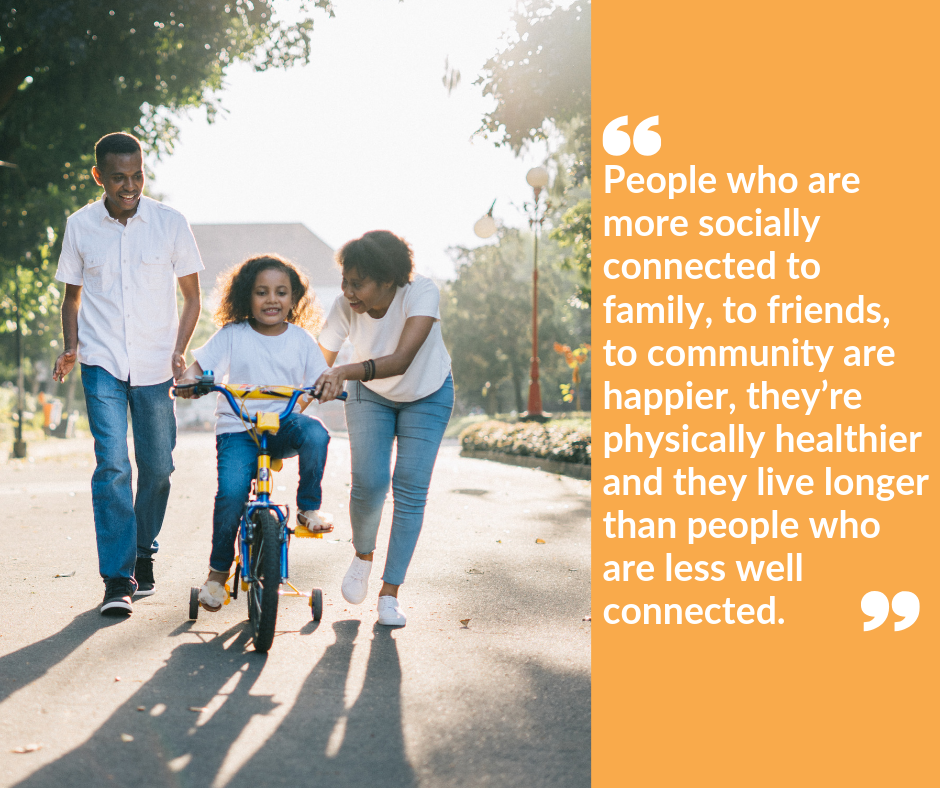Being Neighborly: What the Changing Fabric of Neighborhoods Means for Citizenship
By The Policy Circle Team
With the long hours of daylight dwindling in the last few weeks of summer, we tend to find ourselves outside and interacting more with our neighbors and in our communities. Neighborhoods grow, develop and change naturally over time – especially when local government, businesses, and everyday citizens engage.
Neighborhood associations and community councils are great ways for citizens to step into leadership roles in their communities. On your town, community, or municipality’s website, use the keywords “neighborhood” or “community development” to find out about your local resources.

Some innovative community responses include the Edgemont Community Council, which was created to serve as the focal point for the community’s active neighborhood-oriented civic associations, giving residents both a community-wide forum for discussions and a non-partisan representative voice at Town Hall. In Nashville, the Whitland Area Neighborhood Association hosts an annual July 4th celebration with canoes filled with ice and refreshments, a local orchestra or band to lead All-American sing-alongs, a children’s bike parade, and a bake-off.
Just this month, Policy Circle Leaders and members gathered at The Harrison Center in Indianapolis, IN to enjoy the exhibit, “The Beauty of Front Porch Citizenship” and discuss what it means to be a citizen. They shared a few highlights from their circle conversations and recommended readings and podcasts for the summer.
- What does it mean to be a citizen? Maybe it is each of us continually safeguarding the tension between individuality known as individual freedom of being and community. Maybe it is as simple as the pursuit of a simple feeling of wellbeing known as simple feeling of wellbeing. How we think of ourselves as citizens changes as our life stages change. For some it is an association, or faith-based institutions, or neighborhood that allows us to understand what it is to be a “citizen of” something: enjoy a unique experience, shape the world around us to “do better”, and find confidence and belonging.
- From Front Porch to Patio – There has been an architectural shift of our homes over the past decades from designing homes with front porches to back patios. Front porches provided a space for you to see and be seen with your neighbors – a way to learn from each other and discuss the news of the day. With the shift to the back patio, are we avoiding our neighbors and isolating ourselves from people and issues? To take it a step further, are we withdrawing in our homes more – behind our screens where our words aren’t always as kind, honest and factual and where we can’t be accountable for the things we say and the impact it has on our fellow citizens?
- How does our history reflect our citizenship today? We need to learn from our history and condemn our mistakes and celebrate the good. History is a reflection of human nature and what is capable of doing – we must learn from it and have a “growth mindset”. We need to think and gather facts before we react and think about the human and empathetic element of citizenship.
- Defining Citizenship – You are born or become a citizen of the United States of America. However, citizenship is very local. How can you have an impact and leave a legacy – which many define as leaving the world a better place? Active citizenship takes a lot of personal service and time – instead of overtime at work, give overtime to the people in your community.
- The American Quilt – Which patch of the American Quilt are you? Are you the center patch that holds it all together? Are you frayed and on the corner – yearning for help from your fellow citizens? Or are you the bold, colored one with a pattern that can have a great impact on your fellow citizens?
- Indiana State Leadership Council Recommended Readings/Podcasts
Interested in knowing more about who is influencing communities and neighborhoods at the state and federal level? Take a few minutes and review one of the newest Policy Circle Briefs: The Changing Fabric of Neighborhoods. This brief is a good place to start to understand the various stakeholders who stitch together the fabric of our neighborhoods. Then register for the 4th Annual Policy Circle Leadership Summit and continue the discussion.

The Policy Circle is a 501(c)3 which provides a fact-based, nonpartisan framework built to inspire women living in the same community to connect, learn about and discuss economic policies that impact their lives. Women across the nation are taking a leadership role in the public policy dialogue on what human creativity can accomplish in an open economy.